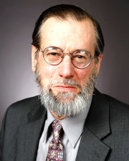National Surveys of Population Health: A BCB 2015 Panel Discussion
13:30-15:30, Sept. 11th, 2015
Room 225
6th ACM Conference on Bioinformatics, Computational Biology, and Health Informatics Georgia Tech Learning Center, Atlanta, Friday September 11, 1:30pm-3:30pm
Machell Town, PhD, Branch Chief, Division of Population Health, National Center for Chronic Disease Prevention and Health Promotion, Centers for Disease Control and Prevention (CDC)
Paula Yoon, ScD, Director, Division of Health Informatics and Surveillance, Center for Surveillance, Epidemiology, and Laboratory Services, CDC, Atlanta Georgia
Leslie Lenert, MD, Chief Research Information Officer, Medical University of South Carolina; Chief Medical Information Officer, Health Sciences South Carolina; keynote speaker for Health Informatics BCB 2014; former Director of National Center for Public Health Informatics, CDC
Bruce Schatz, PhD, Head, Department of Medical Information Science, University of Illinois at Urbana-Champaign; program chair for Health Informatics at BCB 2014, and panel organizer.
ABSTRACT
At the core of the healthcare crisis is the need to stratify individuals within populations, to predict “which persons have which outcomes”. Supporting healthcare infrastructure requires measuring health status at population scale, including health surveys and population based case reporting. National Surveys of Population Health (NSPH) have been developed and deployed to provide the baseline datasets to detect national trends and regional variations, to better understand risk factors. Traditionally, such surveys have used quality of life questionnaires on representative samples of the national population across all regions. For example, the BRFSS (Behavioral Risk Factor Surveillance Survey) is a telephone survey developed by the CDC (Centers for Disease Control and Prevention), asking health questions to hundreds of thousands of persons each year. Disease case reporting also has long collected data on epidemiology and laboratory characteristics of each case, determining what conditions should be reported to whom.
The technology for both population surveys and disease reporting is now in a transition period, where new support for faster automated data collection is feasible, such as electronic medical records and wearable mobile devices. This panel will take advantage of BCB being hosted close to CDC to discuss these. Different speakers will cover different aspects of future potential for NSPH and important applications. These include reviewing existing national surveys with extensions and discussing modernization for surveys with reporting, plus reviewing utility of medical records in regional deployments and discussing mobile health monitors for more frequent surveillance. The panel focus will be broad utility of integrated systems incorporating lifestyle questionnaires with medical records with health monitors for effective guides for general public. Each panel member will describe specific technologies and developments, followed by panel discussion to answer questions from the audience and speculate on the future.
SPEAKERS

Machell Town, PhD, is Branch Chief, Division of Population Health, National Center for Chronic Disease Prevention and Health Promotion, Centers for Disease Control and Prevention (CDC). She is the Team Lead of the Survey Operations Team with an integral role in providing and weighting the interim and final Behavioral Risk Factor Surveillance System data.She has provided consultation on sample designs for the BRFSS with all states including oversampling of specific populations and local community needs, plus handling cell phones as well as landlines. She has also worked with the sampling and weighting data for Steps to a Healthier US and weighting for Asthma Follow-up Survey. Previously she was a mathematical statistician at the US Bureau of the Census, where she specialized in small area estimation, weighting and variance estimators.

Paula Yoon, ScD, is Director, Division of Health Informatics and Surveillance, Center for Surveillance, Epidemiology, and Laboratory Services, CDC, Atlanta Georgia. She supports the development, application, standardization, and integration of public health information and surveillance systems, as well as the implementation of technology to collect, manage, and analyze public health data. Previously, she was the director of the Division of Epidemiology, Analysis, and Library Services, Center for Surveillance, Epidemiology, and Laboratory Services. There she oversaw cross-cutting programs that included measurement of population health and health disparities, access to and analytic support for the use of healthcare data for public health, and systematic reviews of community preventive services. Earlier at CDC, she was the principal investigator of the National Birth Defects Prevention Study, and worked in the Office of Public Health Genomics where she led an initiative to evaluate the use of family medical histories.

Leslie Lenert, MD, is Chief Research Information Officer, Medical University of South Carolina and Chief Medical Information Officer, Health Sciences South Carolina. He was the keynote speaker for Health Informatics at BCB 2014. Previously he was the Associate Chair for Quality and Innovation of the Department of Internal Medicine, and Professor of Biomedical Informatics at the University of Utah. He has also held posts at the University of California, San Diego, and at Stanford University School of Medicine. He was the founding Director of the National Center for Public Health Informatics at CDC, where he managed the development of key national biodefense computer systems, such as BioSense which merged real time emergency room data from hundreds of hospitals nationally and the Nationally Notifiable Disease Surveillance System. In response to 9/11 attacks, he led a team of engineers and computer scientists that developed the first wireless EHR system for first responders, including the world's first WiFi pulse oximeter and electronic triage tag. He is an AMIA Fellow.

Bruce Schatz, PhD, is Professor and Head of the Department of Medical Information Science in the University of Illinois at Urbana-Champaign. He is also Professor in the Department of Computer Science and the Institute for Genomic Biology. He was the inaugural program chair for health informatics at BCB 2014, and is the organizer of this panel on population health. He was Principal Investigator of national flagship NSF projects in digital libraries, building the first distributed repository of structured documents across the Internet, and in bioinformatics, building the first semantic federation of biomedical literature for genomic analysis. He won best paper at AMIA for the first semantic indexing of Medline, on supercomputers. He is AAAS Fellow for developing the first network browser for multimedia documents, which led directly to creation of the Web. His research in mobile devices includes predictive analytics with smartphone sensors to measure vital signs with clinical validity. He is the author of the first technical book on using mobile technologies to revolutionize medicine and public health, Healthcare Infrastructure: Health Systems for Individuals and Populations, Springer 2011.